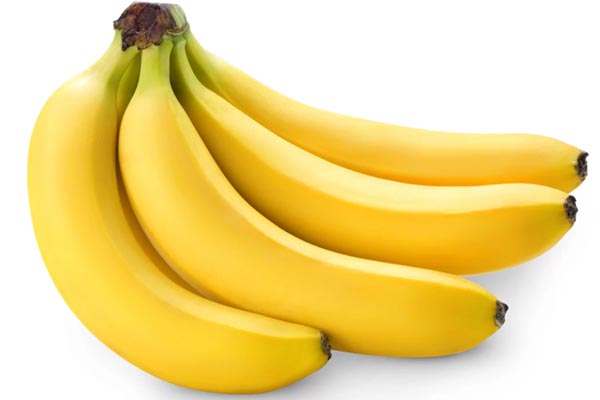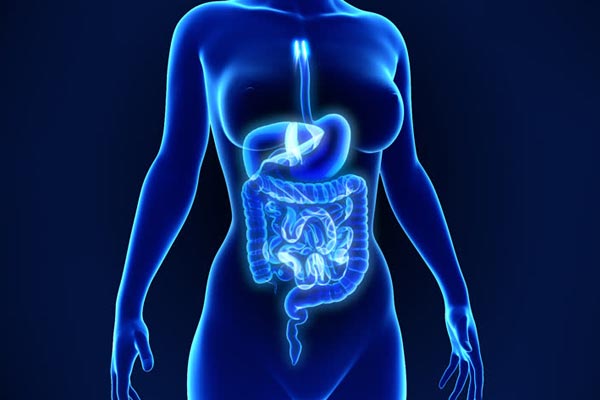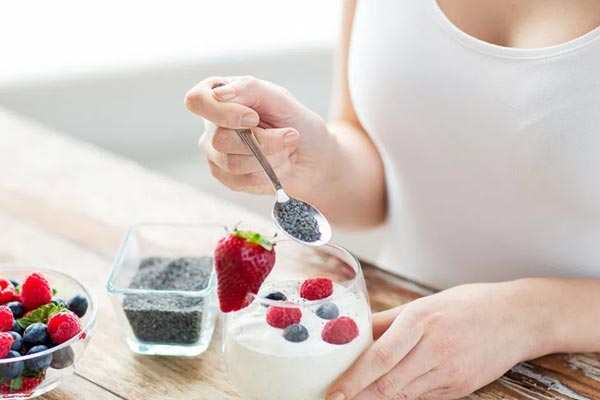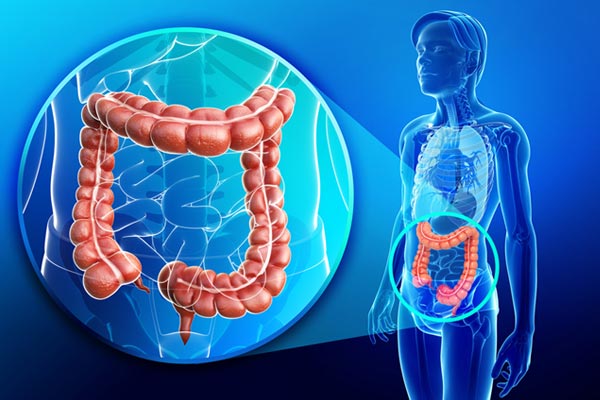Silkworm Phenomenon
Enzymes in a silkworm’s intestines – serrapeptase – dissolve the cocoon and enable the silkworm to transform into an adult moth.
The enzyme Serrapeptase is capable of dissolving dead tissue with no harmful effect on living cells.
The late German physician, Dr. Hans Nieper, used the enzyme serrapeptase to treat arterial blockages in his coronary patients.
Enzymes are amazing.
Enzymes Sustain Life
We eat to sustain life. The key factor is not how much food we eat, but rather how much food we digest, and enzymes are the main component in food digestion.
Why are digestive enzymes so important for life?
Found in the digestive tract, enzymes are naturally produced by the body and serve a vital role in breaking down the foods we eat into digestible nutrients so that your body can take them in and use them for energy.
Digestive enzymes are proteins. Like all proteins, enzymes are built with amino acids structured in a long chain.
Each enzyme consists of between a hundred and up to a million amino acids placed like pearls on a string.
The order or sequence of amino acids determines the structure and function of an enzyme.
Different digestive enzymes are produced to target specific molecules in foods.
Whether you eat a piece of bread, an apple, or a bowl of ice cream, your body must turn that food into digestible nutrients that your body can take in and use for energy.
What are the major types of food?
- Protein
- Carbohydrates
- Fats
What are the major digestive enzymes and their function?
- proteases (for protein digestion)
- amylase (for carbohydrate digestion)
- lipase (for fat digestion)
Only food particles tiny enough can cross the intestinal wall and enter the bloodstream to be utilized by the body to become life-sustaining energy.
Without digestive enzymes, we wouldn’t be able to absorb any of the nutrients in our food which means that even though we’re eating well, we aren’t absorbing all that good nutrition.
A healthy body is pretty good at producing digestive enzymes by itself, thanks to your salivary glands, stomach, pancreas and small intestine.
The Pancreas: Enzyme Superstar
By far the star of enzyme production is your pancreas where most digestive enzymes are made.
Each day, the pancreas secretes about 1.7 liters of pancreatic juice in the small intestine.
The juice contains enzymes, including protease, amylase, and lipase, required for digestion and absorption of food.
Digestion: Not a Fan of Refined Foods
In nature, raw fruits and vegetables contain enzymes necessary for their digestion.
In theory, a raw apple contains the enzymes necessary for our bodies to utilize its nutrients, however, if the apple is grown in nutrient-depleted soil, its enzyme content will be below par.
And if the fruit becomes apple pie, sauce, or pasteurized juice, its enzymes are destroyed by the heat.
Could Eating Like Our Ancestors Make Us Healthier?
Humans used to get a lot more enzymes from their diet. In the past, humans consumed plenty of raw foods to help re-supply the digestive tract with beneficial enzymes, but today most of the foods we eat are cooked or heavily processed—both of which deplete natural enzymes.
What’s more, even the raw foods we eat are typically transported and refrigerated, which causes their natural enzyme content to lower even further.
The more foods are refined, the more digestive enzymes your body must produce on its own to absorb nutrients properly.
Causes of Digestive Enzyme Deficiency
The following conditions lead to poor digestion:
- Diet rich in processed foods: Raw foods contain enzymes that assist our digestion. Unfortunately, the cooking and processing of foods destroy the enzymes.
- Aging: have shown that the levels of digestive enzymes decline steadily after the age of 20. It is estimated that by the age of 50, your enzyme production is half of that when you were a child.
- Chronic stress: Stress activates our “fight or flight” sympathetic nervous system response when our digestive system receives much less attention because the body rouses for emergency action. As a result, the production of digestive enzymes is suppressed.
- Alcohol: It reduces the quantity of digestive enzymes secreted by the pancreas.
- Sleep deficiency: Several studies have found an association between abnormal sleep and gastrointestinal diseases. Disruption of circadian physiology, due to sleep disturbance or shift work, may disrupt production of digestive enzymes.
Conventional vs Functional Medicine
Conventional medicine recognizes a few causes of digestive enzyme deficiency, and they are only the most extreme cases, including acute or chronic pancreatitis, cystic fibrosis, cancer of the pancreas, Shwachman-Diamond, and diseases of the small intestine that affect the brush border, such as Crohn’s disease, or celiac disease.
Functional medicine recognizes that underlying health issues can contribute to enzyme deficiency. Leaky gut is the most common culprit.
Medical recognition extends to inflammation from food sensitivities and toxins which decrease enzyme production.
Symptoms of Digestive Enzyme Deficiency
Symptoms that suggest you might have problems with digestive enzyme deficiency include:
- Feeling heavy, gassy bloated, sluggish after meals
- The sensation that you have food sitting in your stomach (a rock in your gut)
- Feeling full after eating a few bites of food
- Undigested food in your stool
- Abdominal cramping after meals
- Persistent heartburn
- Bacterial overgrowth in small intestine
- Trouble digesting fatty foods
- Skin rashes, acne, and eczema
- Brain fog, headaches, and mood swings
Dr. Tim Gerstmar is a Seattle-based Naturopath who specializes in digestive health.
According to Dr. Gerstmar, “The best way to know if you have an enzyme deficiency is by stool testing, to measure how well you’re digesting and how well your pancreas is producing digestive enzymes.”
Conventional medical doctors are unlikely to run these tests, and the tests are almost certainly not covered by insurance. If you’d like to run one of these tests, seek out a qualified alternative provider whom you trust.

Can’t you just ‘eat’ more digestive enzymes?
Maybe. Foods like sauerkraut, avocado, bananas, and pineapple will naturally carry digestive enzymes themselves. And you should eat a good amount.
While many foods are enzyme-rich, the minute you start cooking – you basically kill the digestive enzymes in them.
Also, you can’t really eat enough enzyme-rich raw foods to make up for the deficiency in enzyme production caused by certain conditions, such as leaky gut.
Magical Enzymes?
Enzymes Supplements. We’re betting you’ve heard of them, have a vague idea that they’re good, and wonder if you should be taking them. But this is one area where we also see a lot of confusion.
Your body makes and uses thousands of enzymes every day—so it may seem odd that enzymes are sold as dietary supplements.
“Enzymes” may sound like something magical, and perhaps they are. Enzymes regulate virtually every chemical reaction in our bodies and in all living cells everywhere. So how can you maintain healthy levels of digestive enzymes?
The good news is that since digestive enzyme supplements are safe and reasonably cheap, you can always try them and see if you notice any difference in your digestion.
Construction Workers of the Body
Digestive enzymes are the “construction workers” of the body. They take raw materials – the foods you eat – and turn the raw materials into something useful – like energy.
Having an imbalance of digestive enzymes means your construction workers are on strike.
Your body stops working efficiently and certain foods aren’t processed fully before leaving the body.
If you want to avoid this problem and make your digestive system as efficient as possible, then digestive enzyme supplements are one of the best ways to restore balance to your gastrointestinal system.
Digestive enzymes, what are they good for?
Absolutely everything! Without digestive enzymes, you could eat like Martha Stewart all day long and still be unhealthy, because the body is missing out on all the goodness in the foods.
For those of us with leaky gut, it is important to know that the absorption and utilization of nutrients will repair our gut lining and contribute to healing leaky gut.
In general, a healthy balance of digestive enzymes means normal biological processes can occur.
Additional benefits include more natural energy and less need for multivitamin supplements.
Side Effects of Taking Digestive Enzymes
Unlike many other supplements, the very first time you take digestive enzymes you should become aware of the effects.
Not in terms of noticing more nutrient absorption, but rather in noticing the absence of symptoms, i.e. heartburn, stomach pains and other after-effects of eating with an enzyme deficiency.
You will perceive that the feeling of having ‘a brick in your stomach’ disappears within days of starting a digestive enzymes regimen. Of course, everyone is different, but studies find this to be a common experience.
Digestive enzyme supplements assist with the initial breakdown of food in your stomach.
This avoids larger food particles from entering and tearing up your intestinal gut lining as they make their way out of your stomach.
Digestive enzyme supplements help leaky gut by giving your GI tract a head start.
When should I take digestive enzyme supplements, and how much should I take?
Take your digestive enzymes with food. Some people make a big deal of timing, but the bottom line is to get them in around the time you’re eating.
Most people find it easiest to pop them just before they sit down to eat, but anytime within about 30 minutes of your meal is going to be beneficial.
If you have a high-quality product, most people need 1-2 capsules with their major meals. Most people don’t need to take any with light meals or snacks unless their digestive deficiency is severe.
When you’ve found a dose that works well for you, your symptoms should go away—gas or bloat after meals, the feeling of a stone in the gut, or distressed bowel movements should improve.
If not, try increasing your dose slowly, by one pill per meal, giving it at least 3 days (and up to a week) to evaluate how things are working.

What’s the Difference Between Digestive Enzymes and Probiotics?
Digestive enzymes and probiotics often get lumped together into the same category. After all, they both promote health by targeting the “gut”, and both are vital to sustaining life.
Signs that you need one or the other can sometimes be interchangeable, however, as you may have figured, probiotics and digestive enzymes are different in their beneficial actions.
Digestive enzymes are non-living. Your body produces enzymes in the cells of different organs, including the stomach and pancreas, which secrete them as needed into the digestive tract.
These proteins function to break down foods into smaller molecules that your intestine can then absorb.
Probiotics are living bacterial organisms, not produced by the body at all. They live symbiotically with us, predominantly in the lower GI tract.
Probiotics do not break down food molecules, but they stimulate the body’s natural defenses and support immunity by lining the intestines with a protective layer of friendly bacteria. This layer bars pathogenic substances in the gut from harming the body.
Probiotic Supplements
You can get probiotics from a variety of foods or supplements. You can also take probiotics as tablets, capsules, and powders that contain the bacteria in dried form. Probiotics are live microorganisms.
When taken in sufficient amounts, they can help restore the natural balance of gut bacteria. As a result, health benefits may follow.
Most of the studies showing benefits used dosages of 1 billion to 100 billion live organisms or colony-forming units (CFU) per day.
Healthy Combo
Probiotics and Enzymes are two different supplements that can be taken together to support gut health and address digestive issues.
Friendly bacteria (probiotics) and enzymes are both located in the digestive tract. In fact, healthy bacteria in our body produce certain enzymes to assist with digestion.
Sometimes supplementation of both enzymes and friendly bacteria are needed to provide optimal digestion and intestinal wellbeing.
For example, during times of stress and illness, enzymes and friendly bacteria are reduced in the body.
No doubt about it, the combination of enzymes and probiotics is a safe approach for complete digestive care.
Raw Fruits and Vegetables: Small Steps
It can be hard to transition from the diet you currently eat to one with more raw foods especially if you think you “don’t like” raw fruits and vegetables much. Remember, it’s all about taking small steps.
Instead of a glass of pasteurized orange juice, select a raw orange instead. Instead of a soda, drink a probiotic smoothie.
Cheers to Your Gut Health!




1 Comment
How long will I have to take digestive enzymes supplement for digestive deficiency to be corrected, and can the situation reoccur if I stop taking the suppliment?